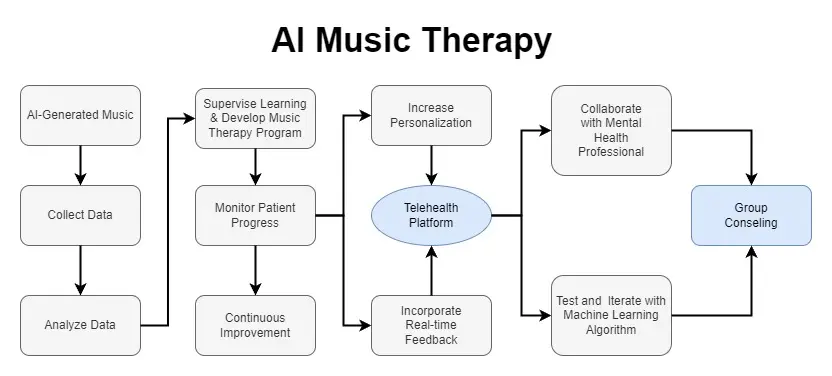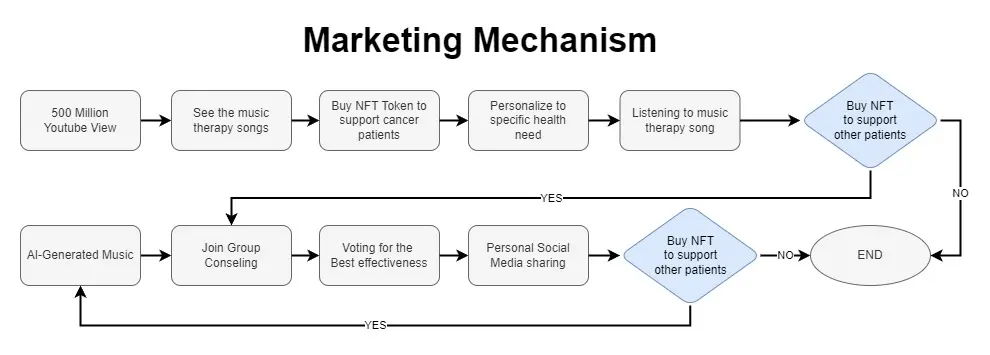Medi-Mani | MDMusic.ai
MDMusic.ai – Golden Phoenix Healthcare Technologies
According to statistics, roughly 1 in 8 individuals have been diagnosed with at least one mental health condition such as anger, depression, anxiety, or stress disorder. Research has shown that music therapy, when supervised by mental health experts, serves as an effective form of preventative treatment. This approach can help save patients from costly hospital stays, which can exceed $100,000 per admission. According to the study "The High Cost of Caring for Adults with Serious Mental Illness (SMI) and Its Implications for the Affordable Care Act" by J. Michael McWilliams and colleagues, the average yearly cost for treating someone with a severe mental illness is around $24,000. Hospital stays make up a large part of these expenses. Data from Arizona State University's CHiR database, which contains over 50 million Medicaid claims, indicates that yearly costs can escalate to $130,000.
As of now, our artificial intelligence-generated music content is the property of our tech partner and has garnered over 500 million views from U.S. audiences on YouTube as of February 2023. Utilizing cutting-edge AI technology for content creation, we are poised to reach billions of views soon. We plan to extend our offerings through two additional revenue streams: (1) A subscription-based model that includes music counseling therapy, available on platforms like Spotify, Amazon Music, and Apple iTunes; (2) Expanding into healthcare sectors like group mental health counseling, pharmaceuticals, and partnerships with Medicare & Medicaid as we evolve over time. Below, we outline the development process of our AI-powered MDMusic platform for mental health therapy.
Data Collection: Initially, we gather information on symptoms like depression, anxiety, and stress from patients using various methods such as surveys or music listening exercises.
Data Analysis: After collecting the data, we apply machine learning algorithms to analyze and discern patterns, which helps us understand the most prevalent symptoms in our patient base.
Program Development: Using the insights from the data analysis, we formulate targeted music therapy programs. These consist of playlists proven to alleviate specific symptoms like anxiety or depression, or personalized music therapy sessions based on the individual's needs (with a maximum duration of 2 hours).

Monitoring: Using machine learning, we track the progress of patients over time, fine-tuning the music therapy programs based on feedback and results.
Ongoing Improvement: We consistently gather and scrutinize data to enhance the music therapy programs. We also employ machine learning to identify emerging patterns, thereby guiding the development of future therapy plans.

Contact
Contact Us
Location:
2375 E Camelback Rd, #600B, Phoenix, AZ 85016
Email Us:
Call Us:
+1 866-686-2284

